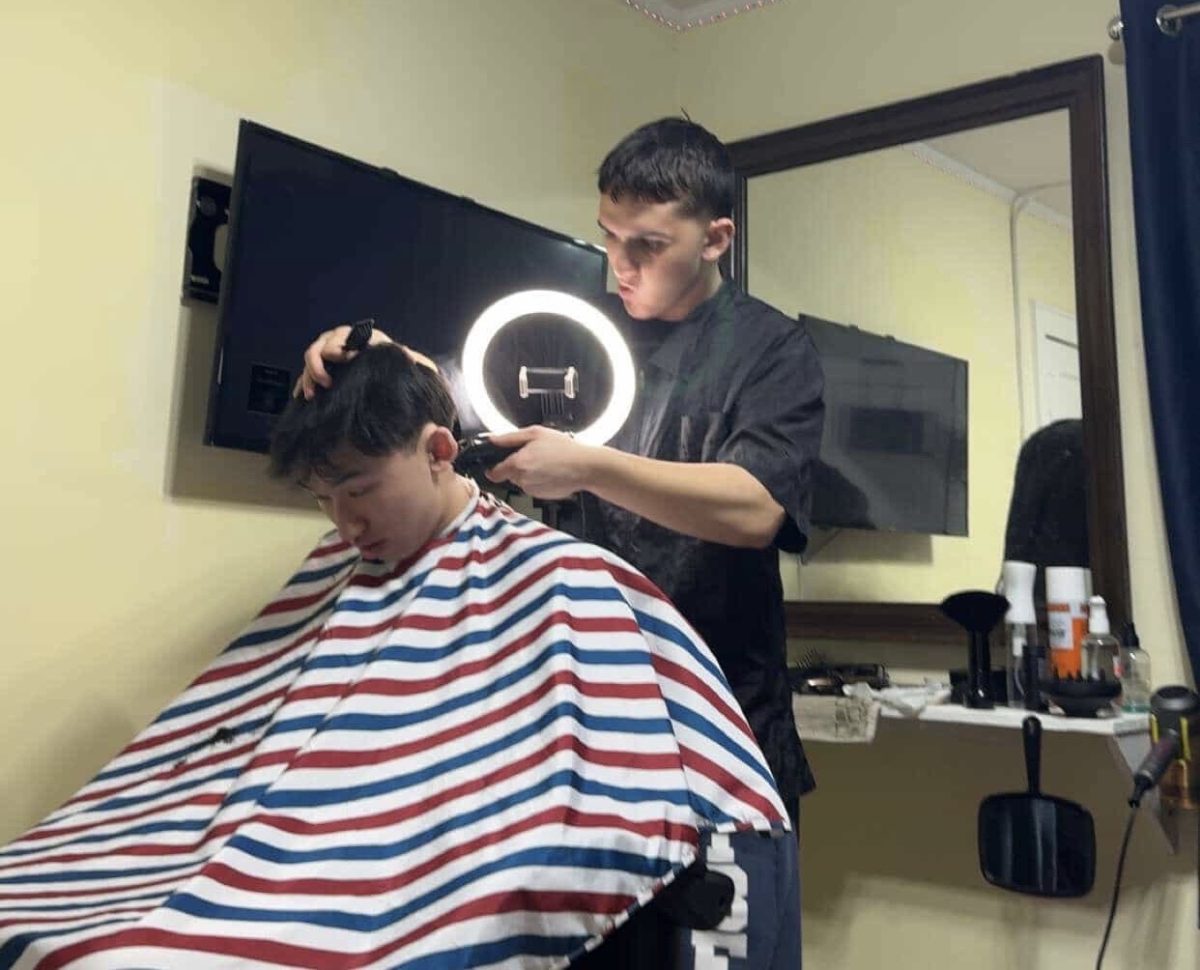
By Annie Zhang
The room permanently reeks of yeast and alcohol wipes. Bunsen burners are flaming in one corner and infectious fungi are growing in another. People around you are recording data on their laptops, but your eye is on the clock. You have five minutes left. You rush to make agar, pour the gel-like substance into a petri dish, and spread bacterium over it. Hastily, you clean up your lab table and pack up your belongings. The bell rings, and you remember that you are not in a professional laboratory—you are in room 214. You are in a high school classroom. You are in Honors Science Research.
This year, there are 53 students in the Honors Science Research program, which is the intermediate research class for sophomores and juniors after they complete the introductory Research Methods class. Each honors research student begins searching for project ideas during the summer, and the experiments take place in class.
Students begin the year by proposing their ideas and forming pairs based on student interest for proposed project ideas. Dr. Carol Hersh, one of the three science research teachers along with Dr. James Truglio and Ms. Nicole Spinelli, said, “When students work and make decisions together, everyone contributes a different viewpoint and figures out how to share the work fairly, which stimulates good thinking and discussion.”
Students spend the next several months designing and conducting their own experiments. In that time, students read enough scientific literature to become knowledgeable in their topics, find a precise method to carry out their experiments, set up appropriate variables and control groups for their projects, and continuously monitor their progress. Once data collection is completed, students spend the remainder of the year analyzing the data with statistics to discover potential trends, writing a complete research paper, and creating a poster board for potential competitions.
Currently, most students in the Honors Research classes are conducting pilot tests before they officially start their experiments. Running multiple pilot tests is an important part of the research process because it not only ensures that project methods are doable, but also resolves any initial issues. Junior Jessica Jiang said, “During the pilot tests, it is crucial that we try out many different things in order to collect more quantitative data. We have to make sure that we transition well to our experimental studies so that we can obtain accurate data.”
Even though the research teachers seek to maintain sanitation and organization in the room, with so many plants, fungi, and fruit flies growing simultaneously, obstacles and temporary setbacks become a natural part of the research process. During his pilot tests this year, junior James Kim had to dispose of his infected sunflower plants and restart part of his experiment. He said, “You go through a lot of trial and error before you get a good result, so you have to be flexible when an unexpected situation arises and have patience to get through all the dead ends.”
Although there is no prerequisite for the Honors Science Research class except completion of Research Methods, students must work at a professional summer laboratory in order to take the Senior Seminar class, which focuses on preparation for national competitions. Starting in October, some students in the research classes begin emailing different professors at various summer labs in order to meet this requirement. Most summer labs are located in universities or hospitals, which provide students with more sophisticated resources, exposure to advanced projects, and assisted directions. Although working at a summer lab presents fewer time constraints and safety restrictions than in-school research, the school science research program gives students more independence by allowing them to almost entirely direct their own projects.
Even though most students in the honors science research classes do not participate in national competitions such as Siemens and Regeneron, they still have multiple opportunities to present their results. Second and third year research students are encouraged to compete at WAC Lighting Foundation’s annual science fair and Long Island Science Congress. South also hosts the annual Great Neck Science Symposium, a night where students are able to share their year-long research with their peers.
Every year, only a few students from South are recognized in the prestigious science competitions such as Siemens or Regeneron. However, competitions are only one measure of successful research. Even research students who do not receive prestigious national awards deserve acknowledgement for their efforts.





